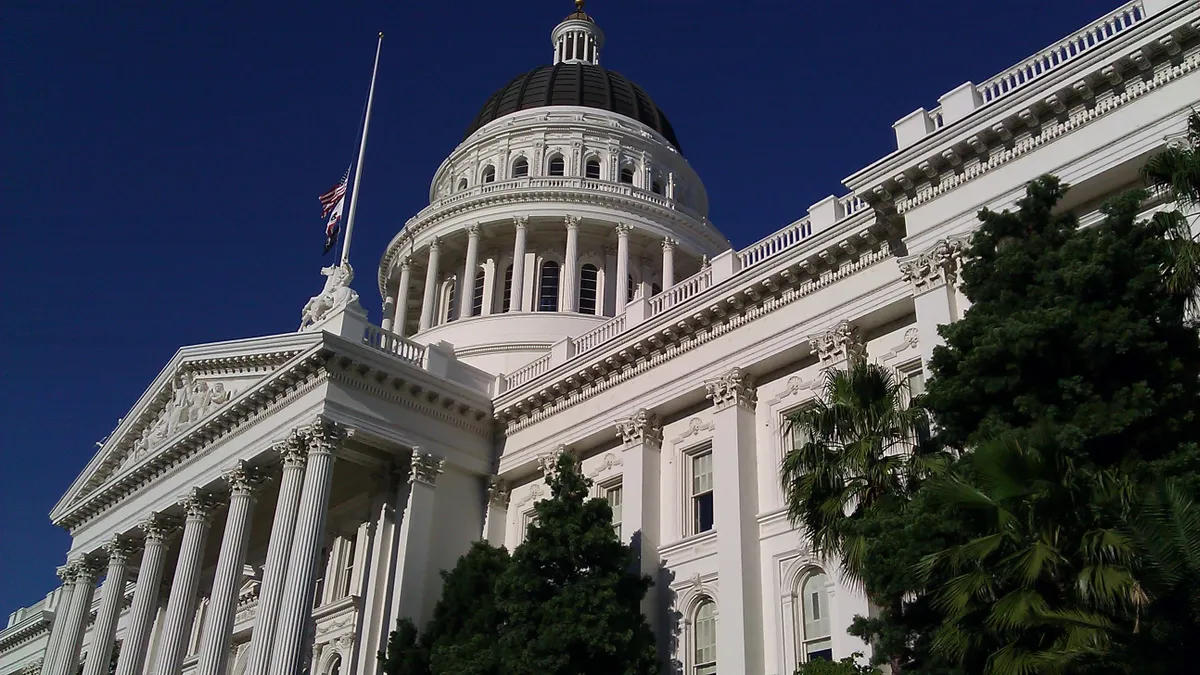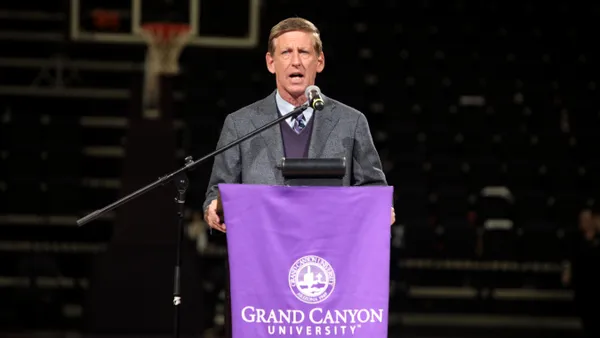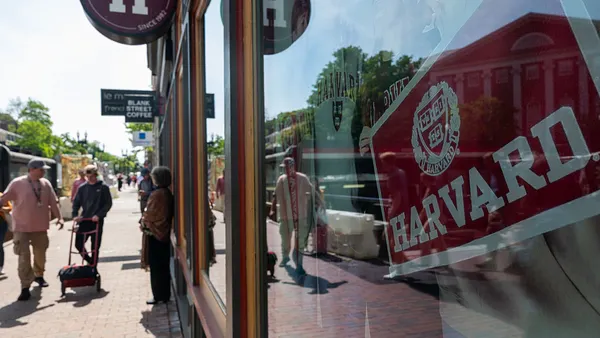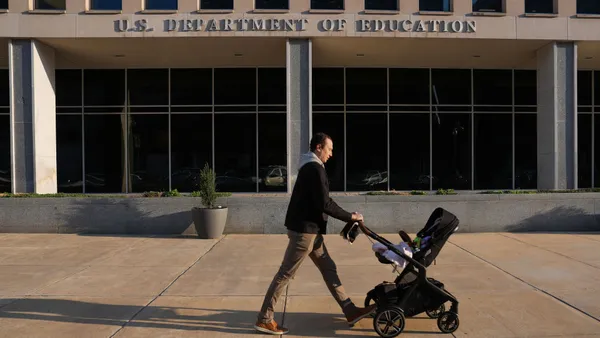Dive Brief:
-
California lawmakers recently passed a bill that could make it easier for the state to oversee nonprofit colleges that previously operated as for-profits.
-
The bill would require colleges that have converted to nonprofits to meet certain criteria before they can receive an exemption from the Bureau for Private Postsecondary Education (BPPE), which oversees private colleges operating in the state.
-
The proposed legislation, which would take effect in 2022 if signed into law, aims to crack down on nonprofit conversions that use complicated legal structures or include agreements with the former for-profit's owners.
Dive Insight:
Some large colleges that enroll California students in online programs are in the process of or have already transitioned from for-profit to nonprofit status. However, critics of these deals say they take advantage of loosened standards at the IRS, which approves the conversions, and that the schools are operating as nonprofits in name only.
Without an exemption, private colleges enrolling California students are subject to oversight from BPPE and have to post more information about their student outcomes. That includes schools based outside the state.
Their students also have to pay fees that go toward the state-managed Student Tuition Recovery Fund, which is meant to help students financially recover if their institution closed. The fund, however, hasn't collected from students since 2014 because it's barred from holding more than $25 million, according to a 2019 report from The Institute for College Access and Success.
"Although somewhat limited in scope, if signed into law, this bill could impact any institution that has converted from for-profit to nonprofit status in the last decade, or institutions seeking to make that change in the future," Kate Lee Carey, special counsel at the law firm Cooley, wrote in a blog post on Tuesday.
That's because the bill would require California's attorney general to verify that any nonprofit college that operated as a for-profit at any time since Jan. 1, 2010 meets certain criteria before BPPE could accept its status:
-
The nonprofit acquired the for-profit institution's assets for a fair value.
-
It does not have agreements for goods or services exceeding their fair value.
-
It conducts, or directs, all of its own "core functions."
-
It has not entered any contracts, loans or leases with a term greater than three years with the former for-profit institution's owners and managers.
However, the last requirement doesn't apply to a for-profit-turned-nonprofit that is now owned or controlled by a public institution.
Robert Shireman, a critic of for-profit colleges who helped draft the bill text, called the exception an "obvious earmark loophole that should be eliminated." Its inclusion makes it an open question of whether the legislation would apply to recent deals involving the University of Arizona and Purdue University buying former for-profit colleges, said Shireman, a senior fellow at The Century Foundation and former Ed Department official under the Obama administration.
The U of Arizona announced last month it is setting up a nonprofit to acquire Ashford University, an online for-profit institution enrolling around 35,000 students. The new entity, called the University of Arizona Global Campus, would get Ashford's students, faculty and curriculum in exchange for paying Zovio, its current owner, for educational services for the next 15 years.
Although Zovio monitored the bill as it moved through the state Legislature, it did not take a position or seek changes to its provisions, Vickie Schray, Zovio's executive vice president and chief external affairs officer, said in a statement emailed to Education Dive.
Ashford is regulated by BPPE. "We are confident that if Ashford University pursues an exemption, the review process with the Attorney General and the BPPE will be very thorough and ultimately, will produce the appropriate outcome," Schray said.
Other colleges might not pass muster, Shireman suggested. Grand Canyon University, for instance, operated as a for-profit until 2018, when it the school's owner, Grand Canyon Education (GCE), sold its academic assets to a nonprofit entity. The university now receives services from GCE in exchange for 60% of its revenue from tuition and fees and select other income sources. It enrolled roughly 75,000 online-only students in the fall of 2019, according to federal data.














